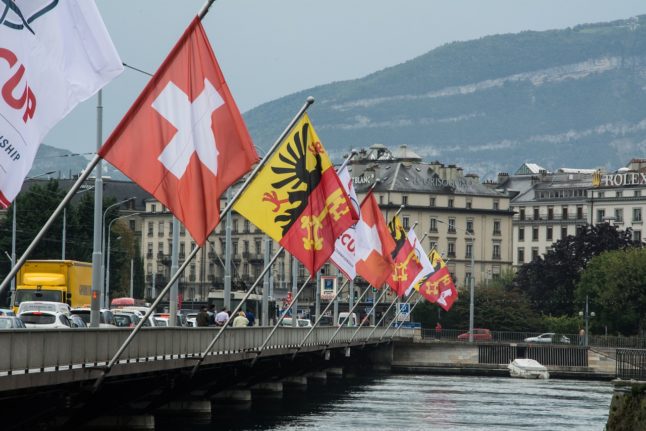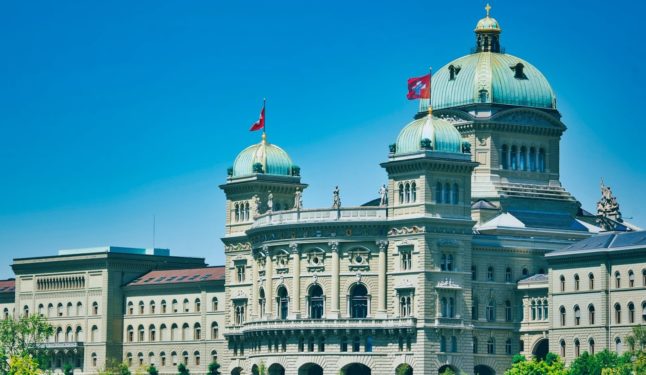Geneva’s Grand Council is the parliament (legislative), while the Council of State is the executive branch of the government.
The officials to both will be elected for five-year terms, that is, until 2028.
In all, 690 candidates are vying for 100 seats in the parliament — the largest number in Geneva’s history.
As for the Council of State, 23 candidates are running for seven posts — very much like the Federal Council, each of the seven members of Geneva’s executive branch heads a different department within the cantonal government.
They are:
- The Department of Public Education
- The Department of Public Health and Security
- The Infrastructure Department
- The Department of Territory
- The Department of Social Cohesion The Department of Finance
- The Department of Economy and Employment
- The Department of Finance
Unlike the Grand Council, which (despite the huge number of candidates) is elected all at once (see below), the election of the Council of State takes place in two rounds.
During the first, on April 2nd, the Genevans will have seven votes to be distributed among 23 candidates. If one of them obtains more than half of the votes, he or she is automatically elected.
This case is rare, however, and usually the candidates are elected in the second round, when the seven people with the most votes are elected.
A complex process
For the Grand Council, you may be wondering how voters can make sense of 690 candidates for 100 posts.
It is in fact, a bit complex.
As Tribune de Genève explains it, “each citizen has 100 votes at their disposal, which they can distribute in three ways. First, it is possible to vote for a [party] list: just detach it from the brochure and slip it into its voting envelope. This gives 100 votes to the chosen list, even if there are not 100 candidates registered on it.”
The second option is to ‘blend’ different lists.
Voters can select a list, cross out the names of candidates they don’t like and add others,
The third option allows voters to compose their own list.
To be elected to the Grand Council, a party must obtain a quorum, that is, 7 percent of the votes; if that does not happen, all the votes cast in the party’s favour are lost.
The 100 seats in parliament are allocated on a pro-rata basis among the parties that obtain a quorum.
But wait, there is more…
As though the choosing between 690 candidates were not complicated enough, there is a twist.
One candidate for the parliament has recently died, but he could still be elected.
Raymond Wicky, who passed away in mid-February, is still on one of the lists. The reason is that he died after the names of all the candidates had been published and could no longer be modified.
So if some voters don’t read obituaries and don’t know Wicky is no longer alive, they could possibly cast a vote for him.
There is no word about what would happen if he were to be elected, but we are pretty sure he wouldn’t be able to serve.
Can foreigners vote?
No.
While foreign nationals have the right to vote on municipal level in Geneva, they can’t do so in cantonal elections — or run for the office for that matter.



 Please whitelist us to continue reading.
Please whitelist us to continue reading.
Member comments